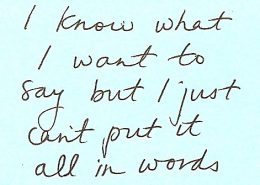 https://socialanxietyireland.com/wp-content/uploads/2018/09/I-know-what-i-want-to-say-but.jpg
577
471
Odhran
https://socialanxietyireland.com/wp-content/uploads/2018/03/sai.png
Odhran2018-09-25 15:57:552018-10-05 20:36:00What I Want To Say.
https://socialanxietyireland.com/wp-content/uploads/2018/09/I-know-what-i-want-to-say-but.jpg
577
471
Odhran
https://socialanxietyireland.com/wp-content/uploads/2018/03/sai.png
Odhran2018-09-25 15:57:552018-10-05 20:36:00What I Want To Say.affecting approximately 13.7% of Irish adults at any one point in time.
Menu: Treatments
Psychotherapy Treatment.
A qualified therapist can play an important part of treatment for social anxiety disorder (social phobia). Cognitive-behavioral therapy (CBT) has been shown to be the most effective treatment. While learning to become your own therapist is one of the primary goals of CBT, it is often most helpful to work through the therapy strategies with a qualified psychotherapist.
These can include psychologists, psychiatrists, clinical social workers, licensed therapists, psychiatric nurses and other professionals as explained on our social anxiety disorder page.
Finding a Therapist.
Finding the right therapist takes research, patience, and intuition.
If you have insurance, it is often best to search through your insurance’s channels. Often, you can call the number on the back of your insurance card or search your insurance company’s website using your zip code to locate a list of psychologists and therapists in your area. Depending on your insurance, you may need to ask for a referral from your primary care physician first.
Also, some therapists my offer a “sliding scale” or reduced fee for those without insurance and limited financial resources.
If you don’t have insurance or would like to search for therapists outside of your insurance’s channels, there are a number of websites that have directories of therapists.
You can possibly ask people in the Forum also.
Nervousness About Contacting Potential Therapists.
You’re not alone if you find making phone calls challenging. This is a common experience for people with social anxiety disorder.
Once you’ve found some potential therapists (see above section), it can be challenging to work up the courage to make the phone calls and ask the questions needed to find out which therapists are qualified. First, remember that you’ve already taken very some important steps. You’ve learned about social anxiety disorder, recognized that you may be suffering from it, taken the initiative to do something about it, and found a list of potential therapists. You should be proud of yourself for making it this far.
On your first phone call you’ll often be talking to the therapist’s receptionist or voicemail and just providing your name, phone number and a good time to reach you.
Since you are going to calling at least a few therapists, it can be helpful to make a short script of what you are going to say to the therapists, including the questions we have listed in the below section.
If you find the thought of making the initial phone call too overwhelming, try looking for therapists that offer the option to communicate via email as a first step.
Questions to Ask Potential Therapists.
We contacted a handful of therapists experienced with treating social anxiety disorder and asked them what questions they’d recommend asking potential therapists.
Go through the list of therapists you found (following the steps above) and ask them by phone or email the following questions:
What percentage of your clients are being treated for social anxiety disorder?
Ideally, you’d find a therapist whose specialty is social anxiety disorder, but that’s not always possible. Regardless, it’s important to find out how much experience the therapist has treating social anxiety disorder. Be persistent contacting therapists until you find one who has specifically worked with social anxiety.
What techniques do you use to treat social anxiety disorder?
Look for phrases like cognitive restructuring, systematic desensitization, exposure techniques, behavioral homework experiments, homework assignments, mindfulness practice, in-session role plays, etc.
Do you give homework assignments?
Learning to become your own therapist is one of the primary goals of cognitive-behavioral therapy and the therapy is much more effective when practiced outside just the session with your therapist. Look for a therapist who’d ask that you do perform both cognitive and behavioral homework assignments between sessions.
What percentage of your clients experience significant improvement and how do you measure that?
Ask for a rough “success rate” for their treatment of social anxiety disorder and, more importantly, how they determine this with their clients (e.g. Liebowitz Social Anxiety Scale).
What special training have you received?
Do they have special training in cognitive-behavioral therapy (CBT)? Have they been trained specifically to diagnose and treat social anxiety disorder?
Don’t get discouraged if none of the five therapists you contacted are experienced in treating social anxiety disorder. Finding a qualified therapist can take persistence. Return to the resources you used to find the first five therapists and look for five more. If possible with the channel you are searching through, specify therapists who are experienced with anxiety disorders and identify cognitive-behavioral therapy as a treatment style.
CBT Group Treatment
The programme, which largely adopts a cognitive
behavioural model, is conducted over fourteen weeks.
If you wish to apply for a place on our Social Anxiety
Programme please read and follow the instructions in
the section ‘Process of applying for a place in our
Social Anxiety Programme.’
We Need Your Help!
Donations
We’re 100% non-profit and rely on the good will of people like you to enable us to continue to provide this invaluable treatment for so many people throughout Ireland.
100% of your donation goes towards helping people with Social Anxiety Disorder.
Latest News & Events
With the support of people like you, we’ve been able to help thousands of people throughout Ireland. Keep up to date with all things SAI via our blog with weekly updates, news, service updates and helpful information.



